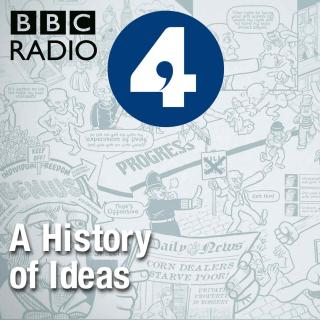
Theologian Giles Fraser on Moral character
How do you make good moral decisions when you have no time to make them? This is a question that troubled Giles Fraser after he met soldiers who had served in Afghantistan. The moral codes Giles had studied required a lot of time for thinking and reflection but you simply don't get that when deciding whether to shoot on the battle field. This led Giles to think about the Greek philosopher Aristotle and his system of virtue ethics – a way of thinking about morals that emphases character rather than rules. Giles talks to former SAS soldier Andy McNabb and philosopher Nancy Sherman on how do you distinguish right from wrong in today's 'battle space' where the rules of engagement are no longer clear. And whether the answer is to be in a 2500 year old piece of Greek thinking. This programme is part of a week of programmes.
25 Nov 201411min

How Can I Tell Right From Wrong?
A new history of ideas presented by Melvyn Bragg but told in many voices. Melvyn is joined by four guests with different backgrounds to discuss a really big question. This week the question is 'How do I tell wrong from right?' Helping him answer it are Neuro-psychologst Paul Broks, Philosopher Angie Hobbs, Theologian Giles Fraser and Lawyer Harry Potter. For the rest of the week Paul, Angie, Giles and Harry will take us further into the history of ideas about morality with programmes of their own. Between them they will examine the idea of conscience and moral intuitions, the relationship between morality and the law, whether moral systems can work on the battlefield and what the brain seems to do when we are making moral decisions.
24 Nov 201411min

Philosopher Angie Hobbs on Beauty and Morality
Philosopher Angie Hobbs is interested in Plato's idea that there is a relationship between beauty and morality. The idea that goodness is beautiful and evil things are ugly is written deep into our culture. But Plato's ideas also suggest that beautiful things could not be appreciated by evil people. Can that idea really survive the image of a Nazi Camp Kommandant listening to classical music?This programme is part of a week of programmes looking at the history of ideas around Freedom.
21 Nov 201411min

Historian Simon Schaffer on Beauty and Evolution
Historian of science Simon Schaffer is interested in the purpose of beauty within evolutionary explanations. Taking the ideas of Charles Darwin as his starting point, he wants to know how and why the capacity to see beauty evolved and whether this powerful, fleeting and apparently most useless of attributes can really have an evolutionary explanation. Simon talks to neuroscientist and biologist Stephen Rose and film-maker and anthropologist Chris Wright about whether Darwin really can explain why he finds Mahler's 5th Symphony beautiful.This programme is part of a week of programmes looking at the history of ideas around Freedom.
20 Nov 201412min

Vicky Neale on the Mathematics of Beauty
Mathematician Vicky Neale is keen to explain why mathematics is beautiful but also to work out whether beauty can itself be explained mathematically. There is a rich tradition of thought here going all the way back to the Greek philosopher Pythagoras, whose understanding of mathematical relationships sits at the origins of western music. Vicky talks to guitar technician Eltham Jones and to Prof Thomas Johansen from the philosophy faculty in Oxford.This programme is part of a week of programmes looking at the history of ideas around Freedom.
19 Nov 201411min

Barry Smith on the Philosophy of Good Taste
Philosopher and wine enthusiast Barry Smith samples David Hume's theory of good taste. The 18th century Scottish philosopher argued that the appreciation of beauty was not easily arrived at - it required dedication, knowledge, expertise. In that sense he is the godfather of the critic and the patron saint of the connoisseur. As he delves into our sense of 'good taste' Barry recounts a wine laden tale from Don Quixote, talks to Neuroscientist Semir Zeki and to Art Historian Liz Prettejohn.This programme is part of a week of programmes looking at the history of ideas around Freedom.Producer: Jolyon Jenkins.
18 Nov 201412min

Why Are Things Beautiful?
A new history of ideas presented by Melvyn Bragg but told in many voices.Melvyn is joined by four guests with different backgrounds to discuss a really big question. This week he's asking 'Why are things beautiful?'Helping him answer it are Mathematician Vicky Neale, historian of science Simon Schaffer and philosophers Barry Smith and Angie Hobbs.For the rest of the week Vicky, Simon, Barry and Angie will take us further into the history of ideas about beauty with programmes of their own.Between them they will examine the mathematics of beauty, whether beauty has moral force, whether beauty can be explained in evolutionary terms and how David Hume developed a theory of good taste.
17 Nov 201411min

Neuroscientist Paul Broks on Free Will and the Brain
Paul Broks tackles an age-old philosophical argument over whether humans have free will or whether all events are pre-determined. As a neuroscientist he is interested in the latest info on how our brains work. He also goes back to the 18th century French thinker Henry Poincare who argued that the universe was entirely mechanistic and that therefore all events in it are pre-ordained. Paul talks to researchers in the field including Professor Patrick Haggard of University College London to establish whether there is any place for human free will in a determined universe.This programme is part of a week of programmes looking at the history of ideas around Freedom.Producer: Jolyon Jenkins.
14 Nov 201412min




















